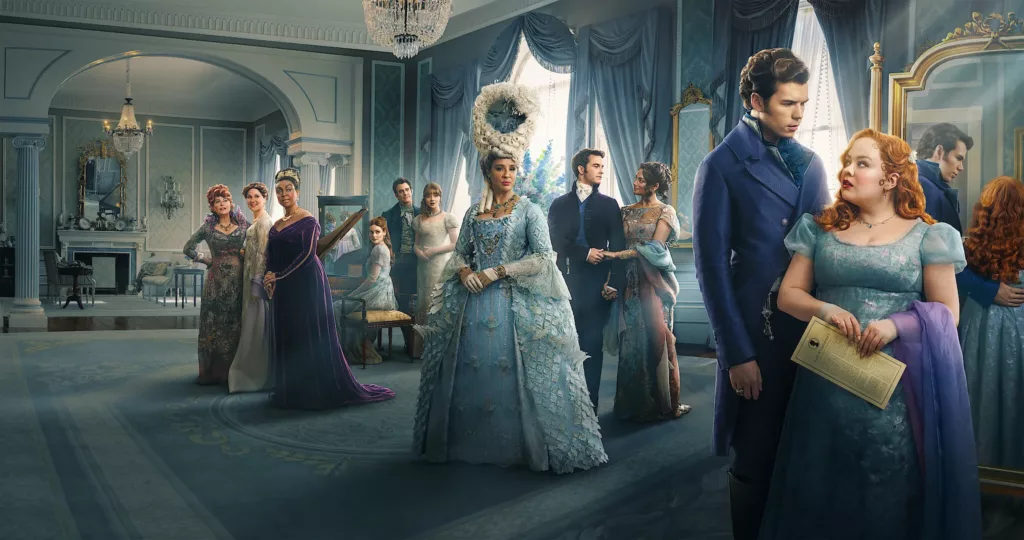The latest season of Netflix’s hit period drama “Bridgerton” has ignited a heated debate about body representation in media, with fans and critics alike weighing in on the show’s depiction of a romance between characters of different body types.
Season 3, which began streaming in May 2024, focuses on the relationship between Colin Bridgerton (Luke Newton) and Penelope Featherington (Nicola Coughlan). While the pairing, affectionately dubbed “Polin” by fans, has garnered praise for its chemistry and storytelling, it has also become the center of a contentious discussion about weight and beauty standards in Hollywood.
The controversy was fueled by a series of articles in major publications, including The Spectator and Forbes, which used terms like “mixed-weight romance” to describe the on-screen couple. The Spectator’s piece, in particular, drew sharp criticism for its blunt assessment of Coughlan’s appearance, describing her as “not hot” and questioning the plausibility of her character winning the affections of the “handsome rich aristocrat” Colin Bridgerton.
In response, Forbes contributor Virgie Tovar penned an article defending the portrayal, arguing that discomfort with the pairing reveals more about societal fatphobia than about the actors themselves. However, Tovar’s use of the term “mixed-weight romance” itself became a point of contention, with many viewers finding the label unnecessary and potentially harmful.
Social media erupted with discussions about the double standard applied to body types in media. Many pointed out that relationships between larger men and smaller women, as seen in shows like “The Sopranos” and “The King of Queens,” rarely face such scrutiny. One TikTok creator, identified as Brigette, highlighted this discrepancy, noting, “It’s never once questioned when the man is the bigger party, but all of a sudden, we need think pieces because this time is reversed.”
Amidst the controversy, Coughlan herself has emerged as a vocal advocate for body positivity. In an interview with Stylist magazine, the actress revealed that she specifically requested certain revealing scenes in the show, describing it as “the biggest ‘fuck you’ to all the conversation surrounding my body.” Coughlan also addressed claims that her waist had been digitally altered for the show, explaining to People magazine that her body had simply adapted to wearing corsets over time.
The debate surrounding “Bridgerton” Season 3 highlights ongoing issues of representation and beauty standards in the entertainment industry. While progress has been made in diversifying on-screen portrayals, the reaction to Coughlan’s casting as a romantic lead demonstrates that deeply ingrained biases persist.
As the conversation continues, many fans and industry observers are calling for a shift in focus from actors’ physical appearances to their talents and the quality of storytelling. The success of “Bridgerton” Season 3, which has reportedly broken viewership records, suggests that audiences are indeed ready for more diverse representations of romance on screen.
